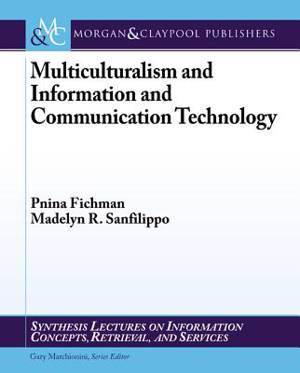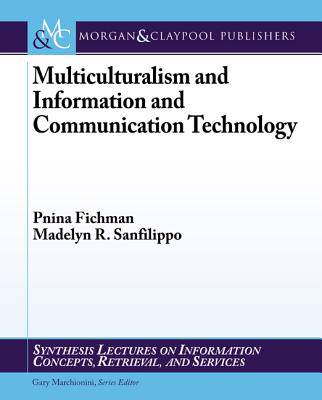
- Afhalen na 1 uur in een winkel met voorraad
- Gratis thuislevering in België vanaf € 30
- Ruim aanbod met 7 miljoen producten
- Afhalen na 1 uur in een winkel met voorraad
- Gratis thuislevering in België vanaf € 30
- Ruim aanbod met 7 miljoen producten
Zoeken
Multiculturalism and Information and Communication Technology
Pnina Fichman
€ 31,45
+ 62 punten
Uitvoering
Omschrijving
Research on multiculturalism and information and communication technology (ICT) has been important to understanding recent history, planning for future large-scale initiatives, and understanding unrealized expectations for social and technological change. This interdisciplinary area of research has examined interactions between ICT and culture at the group and society levels. However, there is debate within the literature as to the nature of the relationship between culture and technology. In this synthesis, we suggest that the tensions result from the competing ideologies that drive researchers, allowing us to conceptualize the relationship between culture and ICT under three primary models, each with its own assumptions: 1) Social informatics, 2) Social determinism, and 3) Technological determinism. Social informatics views the relationship to be one of sociotechnical interaction, in which culture and ICTs affect each other mutually and iteratively, rather than linearly; the vast majority of the literature approach the relationships between ICT and culture under the assumptions of social informatics. From a socially deterministic perspective, ICTs are viewed as the dependent variable in the equation, whereas, from a technologically deterministic perspective, ICTs are an independent variable. The issues of multiculturalism and ICTs attracted much scholarly attention and have been explored under a myriad of contexts, with substantial literature on global development, social and political issues, business and public administration as well as education and scholarly collaboration. We synthesize here research in the areas of global development, social and political issues, and business collaboration. Finally we conclude by proposing under-explored areas for future research directions. Table of Contents: Introduction / Social Informatics Approach to Multiculturalism and ICT: Bidirectional Impacts / Social (Cultural) Deterministic Approach to Multiculturalism and ICTs: ICT as the Dependent Variable / Technological Deterministic Approach to Multiculturalism and ICT: ICT as the Independent Variable / Conclusions / Author Biographies
Specificaties
Betrokkenen
- Auteur(s):
- Uitgeverij:
Inhoud
- Aantal bladzijden:
- 101
- Taal:
- Engels
- Reeks:
Eigenschappen
- Productcode (EAN):
- 9781608457748
- Verschijningsdatum:
- 1/08/2014
- Uitvoering:
- Paperback
- Formaat:
- Trade paperback (VS)
- Afmetingen:
- 190 mm x 235 mm
- Gewicht:
- 190 g

Alleen bij Standaard Boekhandel
+ 62 punten op je klantenkaart van Standaard Boekhandel
Beoordelingen
We publiceren alleen reviews die voldoen aan de voorwaarden voor reviews. Bekijk onze voorwaarden voor reviews.











